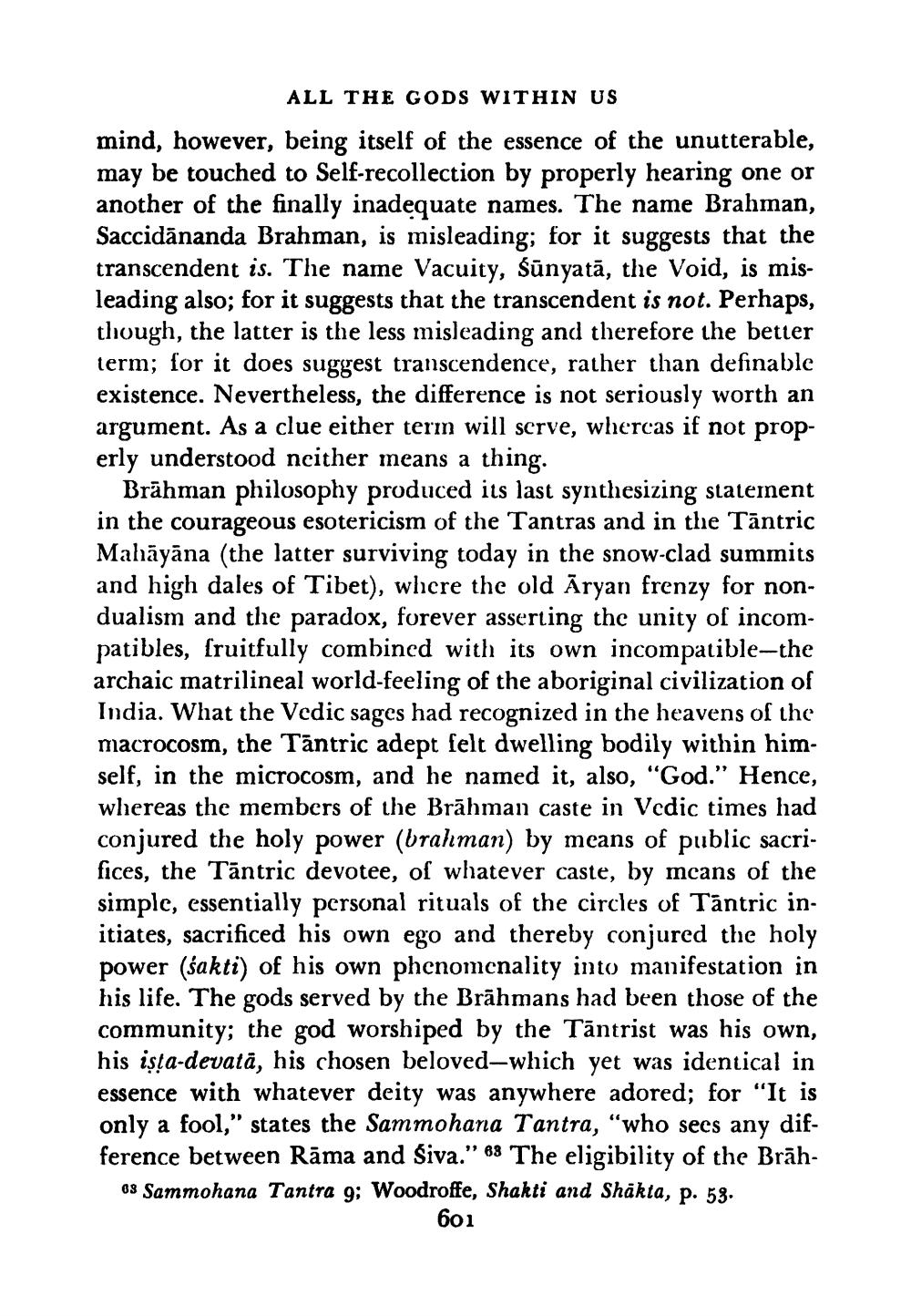________________
ALL THE GODS WITHIN US mind, however, being itself of the essence of the unutterable, may be touched to Self-recollection by properly hearing one or another of the finally inadequate names. The name Brahman, Saccidānanda Brahman, is misleading; for it suggests that the transcendent is. The name Vacuity, Śūnyatā, the Void, is misleading also; for it suggests that the transcendent is not. Perhaps, though, the latter is the less misleading and therefore the better term; for it does suggest transcendence, rather than definable existence. Nevertheless, the difference is not seriously worth an argument. As a clue either term will serve, whercas if not properly understood neither means a thing
Brāhman philosophy produced its last synthesizing statement in the courageous esotericism of the Tantras and in the Tāntric Mahāyāna (the latter surviving today in the snow-clad summits and high dales of Tibet), where the old Aryan frenzy for nondualism and the paradox, forever asserting the unity of incompatibles, fruitfully combined with its own incompatible-the archaic matrilineal world-feeling of the aboriginal civilization of India. What the Vedic sages had recognized in the heavens of the macrocosm, the Tántric adept felt dwelling bodily within himself, in the microcosm, and he named it, also, "God.” Hence, whereas the members of the Brāhman caste in Vedic times had conjured the holy power (brahman) by means of public sacrifices, the Tāntric devotee, of whatever caste, by means of the simple, essentially personal rituals of the circles of Tántric initiates, sacrificed his own ego and thereby conjured the holy power (sakti) of his own phenomenality into manifestation in his life. The gods served by the Brāhmans had been those of the community; the god worshiped by the Tāntrist was his own, his ista-devată, his chosen beloved-which yet was identical in essence with whatever deity was anywhere adored; for "It is only a fool," states the Sammohana Tantra, "who sees any difference between Rāma and Siva.” 68 The eligibility of the Brāh
08 Sammohana Tantra g; Woodroffe, Shakti and Shakta, p. 53.
601




